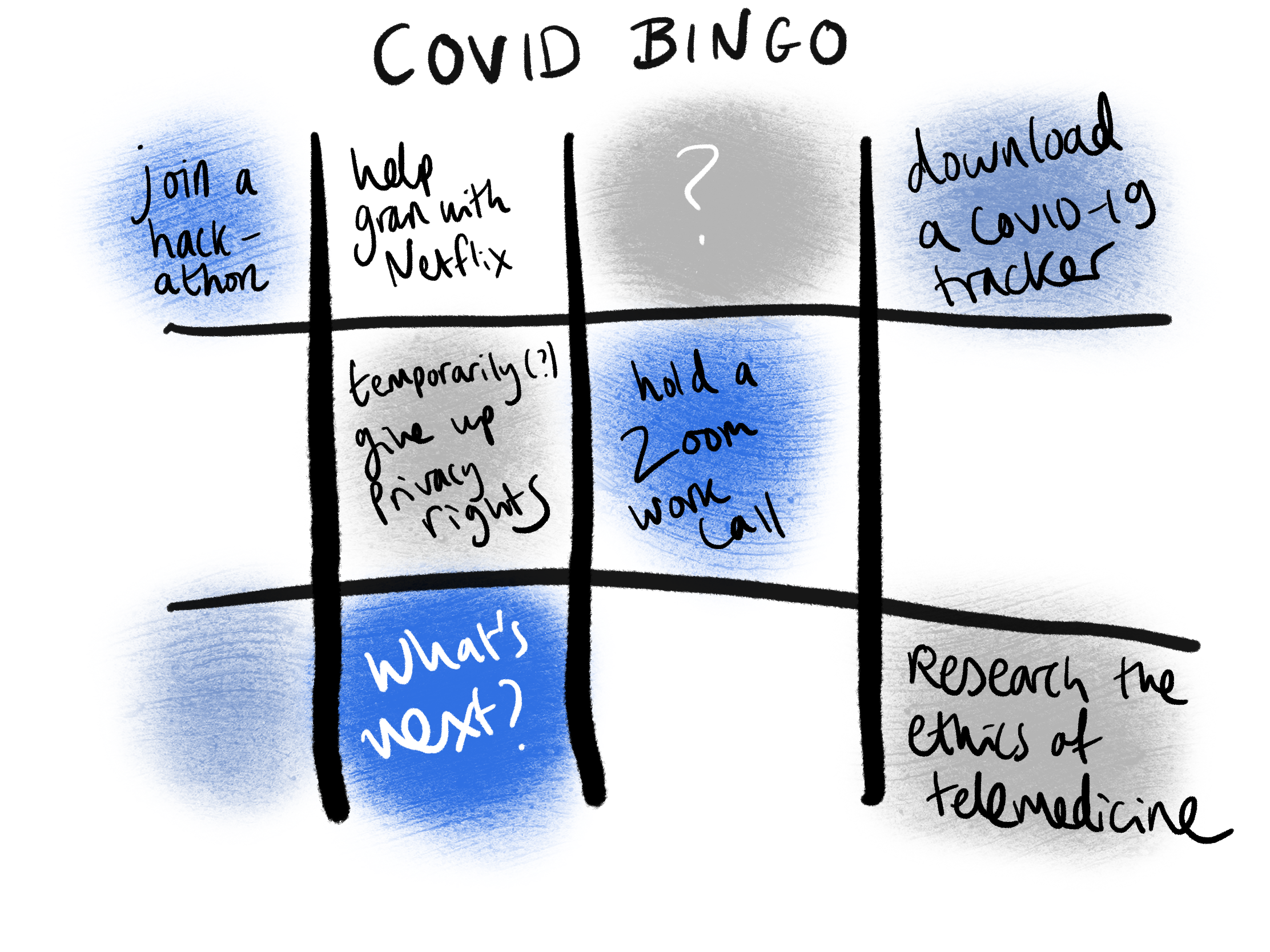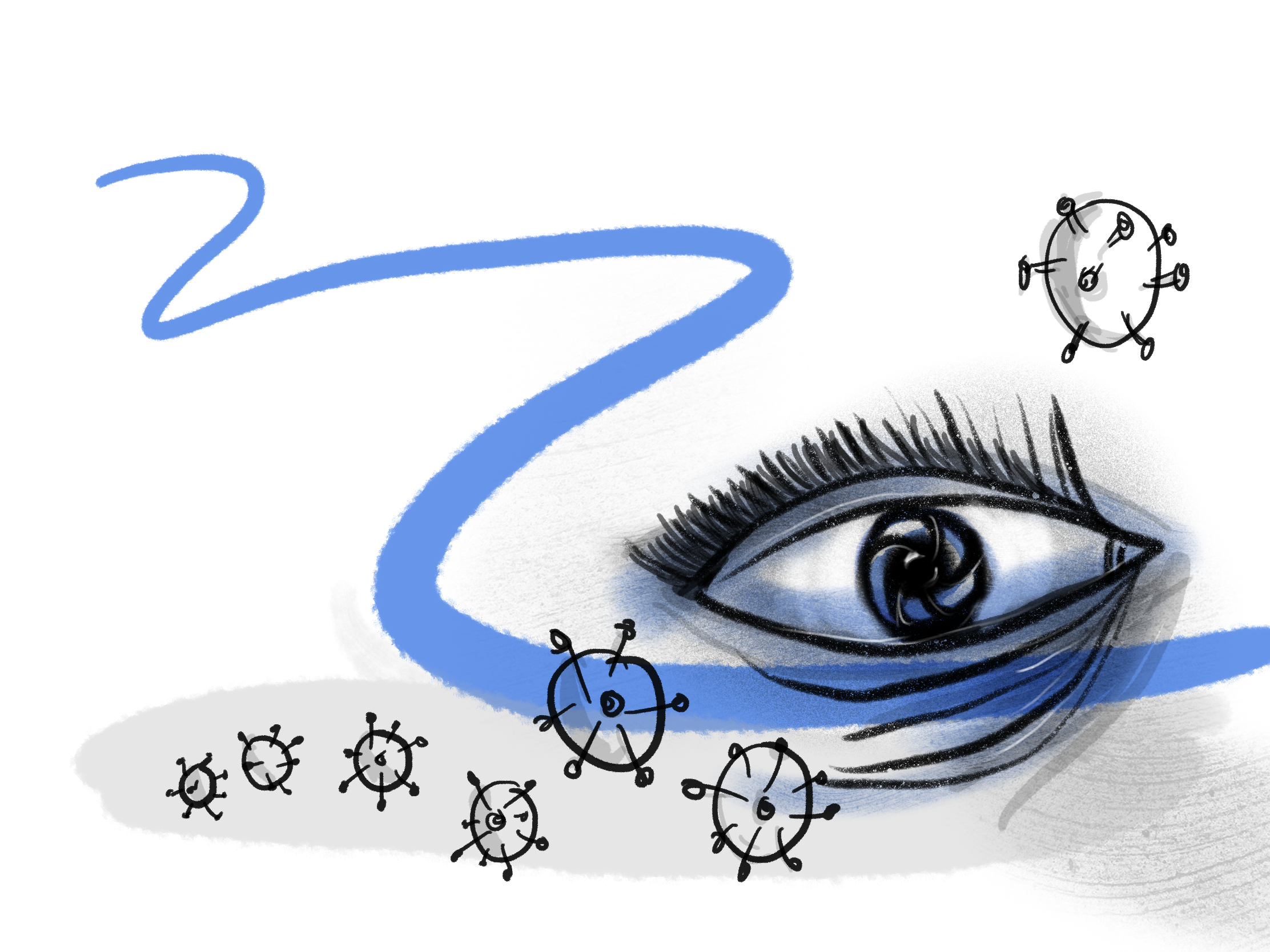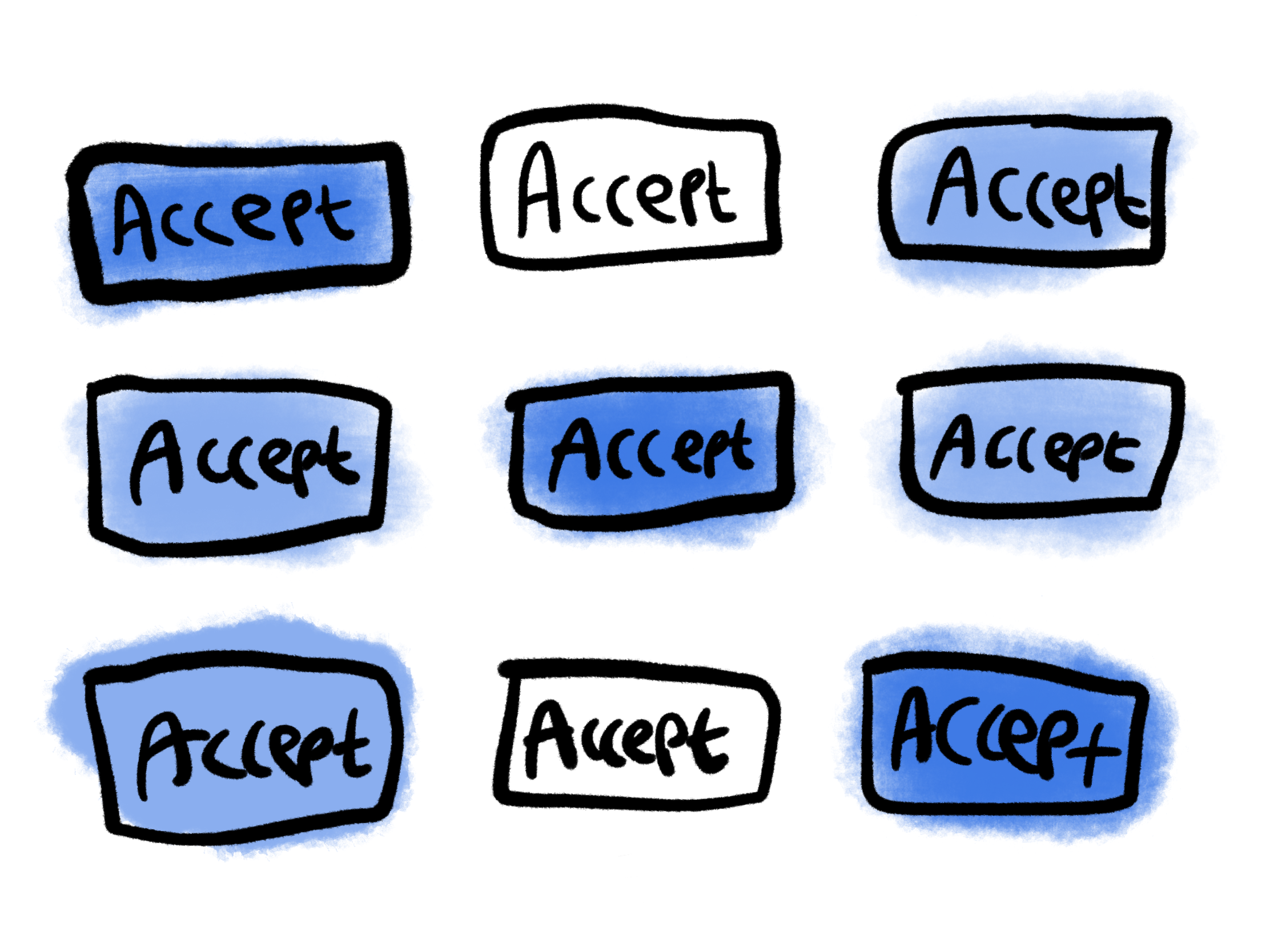Be honest.
You could have set your mum up with drinks over video last year. You could have reached out to your isolated neighbour to offer shopping deliveries or structured your office so your team could work from home. You could even have got into sourdough in a big way. 
So why didn’t you? Why do most of us only radically change our behaviour when we’re forced to?
Sure, we find crisis energising, breaking us out of the inertia of old habits and bringing us together in new ways. If you were cynical, you might observe that humans love drama, stories and virtue-signalling. We love heroes and villains, and the rolling media coverage is thick with those.
You don’t need to be cynical to note that we humans love problem-solving, hence the crop of COVID-19 hackathons, collaborations and other initiatives. Perhaps some of you have been joining in. There are too many to list, although some have tried, and it’s difficult to assess the relative value of each idea. How do we know they’re not adding noise to the noise?
You’ve no doubt been moved, or scared, or personally affected by the death of a loved one or colleague. You might have had to lay off staff, or been let go yourself. Before it became urgent, there wasn’t the headspace to think of online funerals, or the critical mass behind a local gift card to save favourite eateries.
It took hardly any time for big guns like Square and little fish like Wriggle to launch their versions of the above: perhaps they’d already been working on it. Before it became a priority, your GP probably didn’t offer telemedicine either, even though the technology has existed for some time. We know, we’ve built solutions that are already being used.
If you scroll through the lists of projects, collaborations and ‘novel’ solutions to managing everything from social life to critical care, you’ll see that many of these projects are the work of teams who have been quietly building them for months and years. It’s just that in this new world, we’re starting to pay attention, in the same way as we’re valuing ‘low-skilled’ workers more than ever before. You’ve never appreciated the refuse collector or postman more, right?
In a noisy world that’s suddenly gone quiet, attention is a currency that’s rare and valuable, so let’s not waste it. While all eyes are on problems which are normally too complicated, jargony or politically unglamorous to pay much heed to, let’s capitalise on having captured that attention. It could mean that we start to:
It could mean that we start to:
Accept that certain mental and regulatory barriers to adopting online ways of working, learning or getting healthcare have been crossed, which amounts to a paradigm shift of sorts. What happens next is key: will we go back to business as usual? Should we?
Keep up pressure on governments, industry bodies and regulatory bodies to formalise standards for some measures, like telemedicine and location tracking, that may have been introduced in haste without due diligence. Rapid progress has been made, for example with the formation of the Pan-European Privacy-Preserving Proximity Tracing (PEPP-PT) organisation, whose aim is to roll out transparent, encrypted and GDPR-compliant mechanisms for countries to adopt contact tracing technology without compromising human rights. Among those is the decentralised open protocol DP-3T, which uses Bluetooth and is endorsed by both Apple and Google. We want to be able to leave the house, but not at the price of our data privacy.

Recognise that much of the innovation happening is not just novel thought or work, but has been achieved by accelerated networking: putting the right people in touch with each other. Many of the calls for help are experts seeking introductions to government agencies or health commissioners, or labs seeking virologists or reagents. Think about how we can foster a spirit of cooperation across industry and geographical borders in the future, too.
Reflect on how all our industries will change going forward, and whether you will move some or all of your activities online in the long term. This means embracing ideas that might have been unthinkable months ago; online funerals or ceremonies, for example. Those businesses built on unsustainable funding models, like Airbnb, have had to suddenly pivot (online experiences anyone?) or face collapse. It’s likely that this pandemic will change how we see monetisation and risk. Models like Doughnut Economics could become more readily acceptable, too, and not just to progressives.
Examine how we can use this experience to better serve those voices that aren’t given enough weight in business-as-normal use cases. For example, there are many vulnerable adults whose compromised immunity or accessibility challenges have meant it is extremely difficult for them to attend in-person appointments with GPs or specialists. They have long been asking for telemedicine options, but is there any rationale for denying this from hereon in?
With rough sleepers being taken off the streets overnight, how do we ensure they access online services for welfare, banking, voting, employment, healthcare and ongoing mental health support without falling through the cracks?
Maybe you’ve quietly been doing sourdough in a big way for years. Maybe it's all new to you. Either way, let’s not waste the opportunity to focus this new attention on seeing clearly what needs to change.
_
Here at Despark, we’ve been working in digital health for over a decade. We’re missing our office, but we’re used to remote working too, so it’s full steam ahead. From mental health to telemedicine, NHS recruitment and maternal care, we can be relied on to inject strategic insight into your big idea and lead you through the maze of regulatory, tech and social & ethical considerations. Take a look at how we’ve helped others make a difference and if you’d like to talk over an idea, whether it’s brand new or a way to transform your business to digital, we’re here to listen.